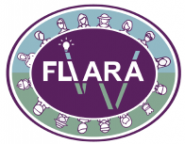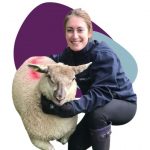The FLIARA project successfully convened a groundbreaking Online Forum today, bringing together ten EU-funded projects focused on rural development, smart communities, and gender equality. Notable projects included the GRASS CEILING project, the COEVOLVERS project, the SWIFT project, the SafeHabitus project, the PREMIERE project, the DEMETER project, the AURORAL project, the ATHENA project, the EU-FARMBOOK project, and the GENDERACTION+ project.
FLIARA Project is dedicated to challenging existing gender norms and stereotypes by showcasing the innovative capacity of women in farming and rural areas. The project places a particular focus on innovations that contribute to the four dimensions of sustainability: environmental, economic, social, and cultural.
The primary objective of the event was to foster a collaborative space among projects, aiming for future collaborations not only in sharing results and lessons learned but also as a hub for joint efforts in dissemination, exploitation, and communication activities.
Boosting women-led innovations in agriculture and rural areas
Boosting women-led innovations in agriculture and rural areas lies at the heart of FLIARA’s mission. The project aims to strengthen women-led innovation at the European level while fostering linkages with EU projects and beyond on local, national, and EU scales as part of its dissemination strategy. Notably, FLIARA will leverage its activities to establish meaningful connections with related projects like Grass Ceiling and SWIFT.
Grass Ceiling (Gender Equality in Rural and Agricultural Innovation Systems) is committed to empowering rural women and amplifying socio-ecological innovations led by women in agriculture, the rural economy, and rural communities. By advancing gender parity aligned with the UN’s goals, realising the EU gender equality strategy, and achieving the objectives of the Green Deal, the Farm to Fork strategy, the Long-Term Vision for Rural Areas, and the European Pillar of Social Rights, Grass Ceiling contributes to holistic progress.
SWIFT (Supporting Women-led Innovations in Farming and Rural Territories) takes an innovative approach to co-create new insights with 21 agricultural women-led innovations across 12 European countries, along with 4 in Brazil and the USA. The project equips stakeholders with practical tools, such as gender-responsive budgeting and feminist farm viability indicators, facilitating a transition towards equitable, efficient, and diversified farming practices.
Collaborating for change
FLIARA Project also seeks collaborations with projects like ATHENA and GENDERACTION+. ATHENA aspires to drive cultural change, combating gender bias and discriminatory practices. GENDERACTION+ focuses on advancing gender equality in the European Research Area through capacity building and strategic policy advice.
Furthermore, FLIARA Project is establishing connections with the PREMIERE project, which aims to develop tools, training events, and networking opportunities for capacity development. This collaboration will include the creation of a Serious Game, an Online Academy, and a MOOC. Moreover, the FLIARA Project will actively engage with the EU-FarmBook project, which aims to facilitate knowledge exchange and collaboration for sustainable agriculture and forestry across Europe.
FLIARA Project recognises the importance of collaboration in communication activities and dissemination efforts. Collaborative initiatives with projects like COEVOLVERS, H2020 DEMETER, H2020 AURORAL, and SafeHabitus will enable the exchange of knowledge and promote inclusive and resilient farming practices, digital transformation, economic growth in rural areas, and farm health and safety advancements, respectively.
The FLIARA Project’s Online Forum is an essential step toward expanding collaborations. Through these collaborative efforts, FLIARA Project reinforces its commitment to driving positive change, fostering gender equality, promoting innovation, and contributing to sustainable development in agriculture and rural areas across the European landscape by considering the combined experience and synergy of EU-funded projects.



